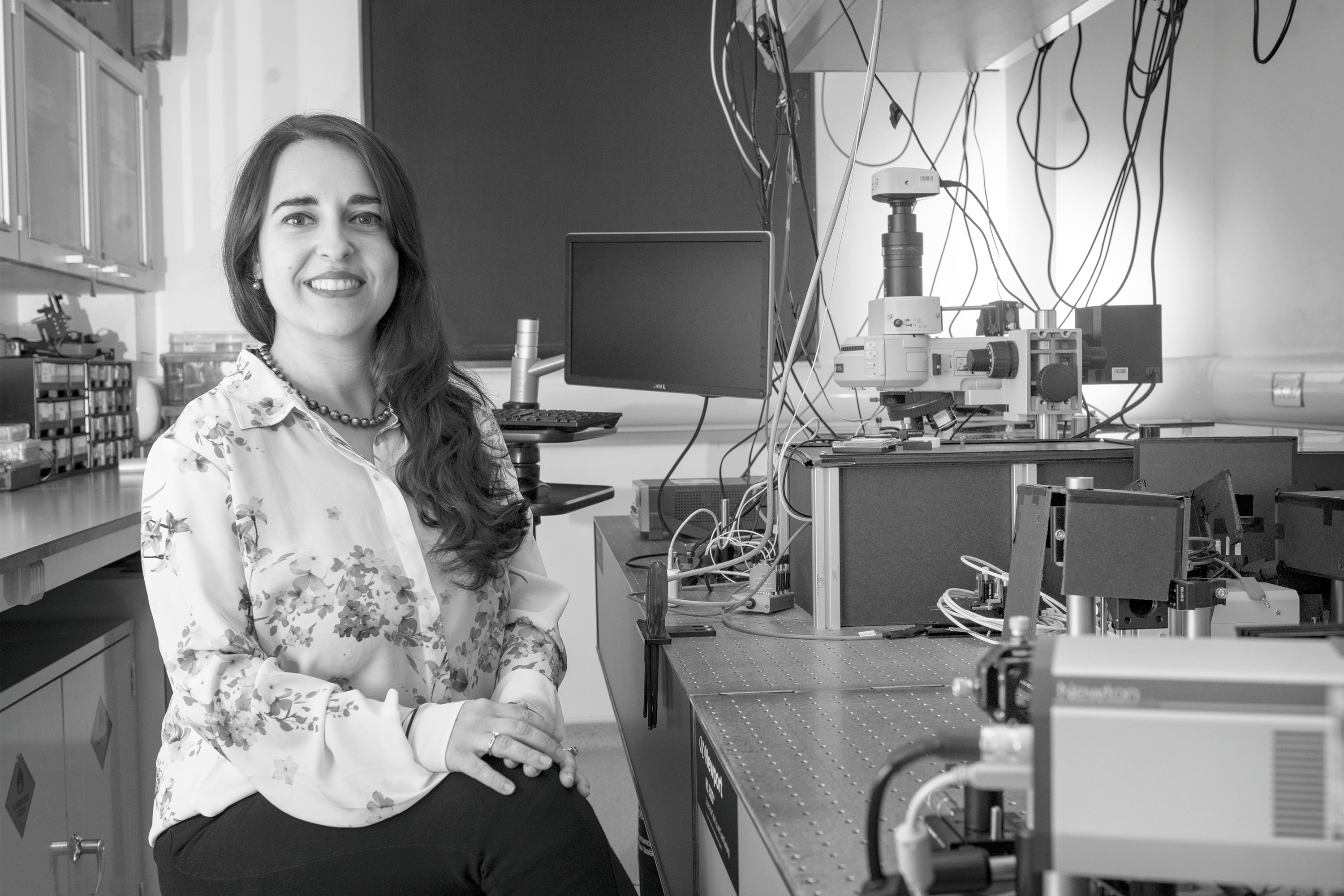‘Wow science’ – the highs and lows of a life in physics.
Interview: Megan Welford / Main photo: Jean-Luc Benazet
Dr Giuliana Di Martino (PhD Physics 2014), says without perseverance her career could have been very different.

Physics has been a central part of my life for as long as I can remember. In high school my friends didn’t care, but I remember listening to my physics teacher and thinking he was some kind of god, because he was explaining nature through physics – why a balloon goes up, why certain things sink in water. Now I explain it to my son, who’s four, when he’s in the bath – and I’ve become the god!
But pursuing physics through academia takes perseverance, and that’s been the most precious thing I’ve had throughout my career. As an academic in the field of device materials, there are moments of what I call the ‘wow’ science, where you’re thinking: “I love this, this is amazing.” But don’t be fooled. This accounts for only about 20 per cent of the job. A lot of my week is spent at home, doing the background stuff that keeps the lab running. People are depending on me, and that keeps me awake at night. But going into the office to meet with those people – my group – to finally discuss the science: that’s the best bit of my week.
I was on the bus when proof arrived that the crucial particle was a boson. I cried"
My PhD was in plasmons – trying to understand these quantum particles and what is going on inside them, which you need to understand to be able to build a quantum computer, for example. You start not knowing anything, and you design experiments to learn things, very slowly. I spent three years of wonder and frustration: in the lab, in the dark, building optical setups with mirrors and lenses, detectors and cameras, lit up with red and blue lasers, listening to Iron & Wine.
Those were the good bits, but I also spent time tearing my hair out. I didn’t find my answer until the final hour. My funding had run out – I was on the bus, with the lab results transmitting to my phone, when it finally came through: proof that the crucial particle was a boson. I cried.
My supervisor at Imperial was Dr Yannick Sonnefraud, who died suddenly due to brain cancer just as I was finishing. I was very shaken and saddened by this. I had been approached by several companies about joining them, but Yannick’s death pushed me back to academia, and I joined Professor Jeremy Baumberg’s nanophotonics lab at Cambridge.
The field of device materials seemed to bring everything together and offer plenty of ‘wow’ moments, such as the way oxygen, or the absence of oxygen, moves inside a transparent material. Or the change of electrical properties as a phone is charging or running out of battery – the tiny piece of information that helps you understand something huge. If we understand how light interacts with novel materials, we can transform most of the devices we use today into low-power devices, which would speed us towards net zero. That’s the mission of my lab.
If I’m going to do something, I’m going to do it properly. I have found that, being a woman, you have to battle twice as hard for everything. Subconscious bias that means you have to prove yourself first – with students who doubt your knowledge, or lab technicians who question what you’ve asked them to do, rather than just doing it. I used to think it was because I was young, but now I’m not young, and it still happens. Still, it can’t be as bad as the funding interview I once went to when I was overdue with my second child. I really wanted the funding, so I decided to go in person, but I was having some dislocation in my hips so I asked if I could sit for the interview. The all-male panel said that wouldn’t be fair on the other candidates, so I stood. I persevered.
Now I have two children under five, so life could be easier. But perseverance for me means being able to stand back and see the bigger picture, remember the excitement of discovery. When things get tough, I tell myself: “This is temporary,” and I keep going.
Dr Giulia Di Martino is Associate Professor in Device Materials at the University of Cambridge. You can now submit a nomination for the Alumni Awards 2025.